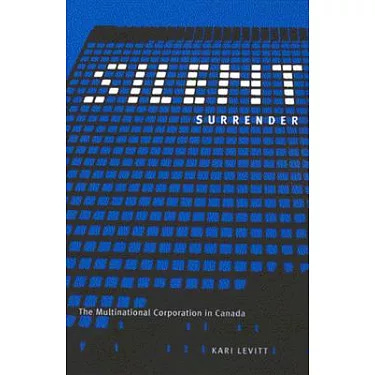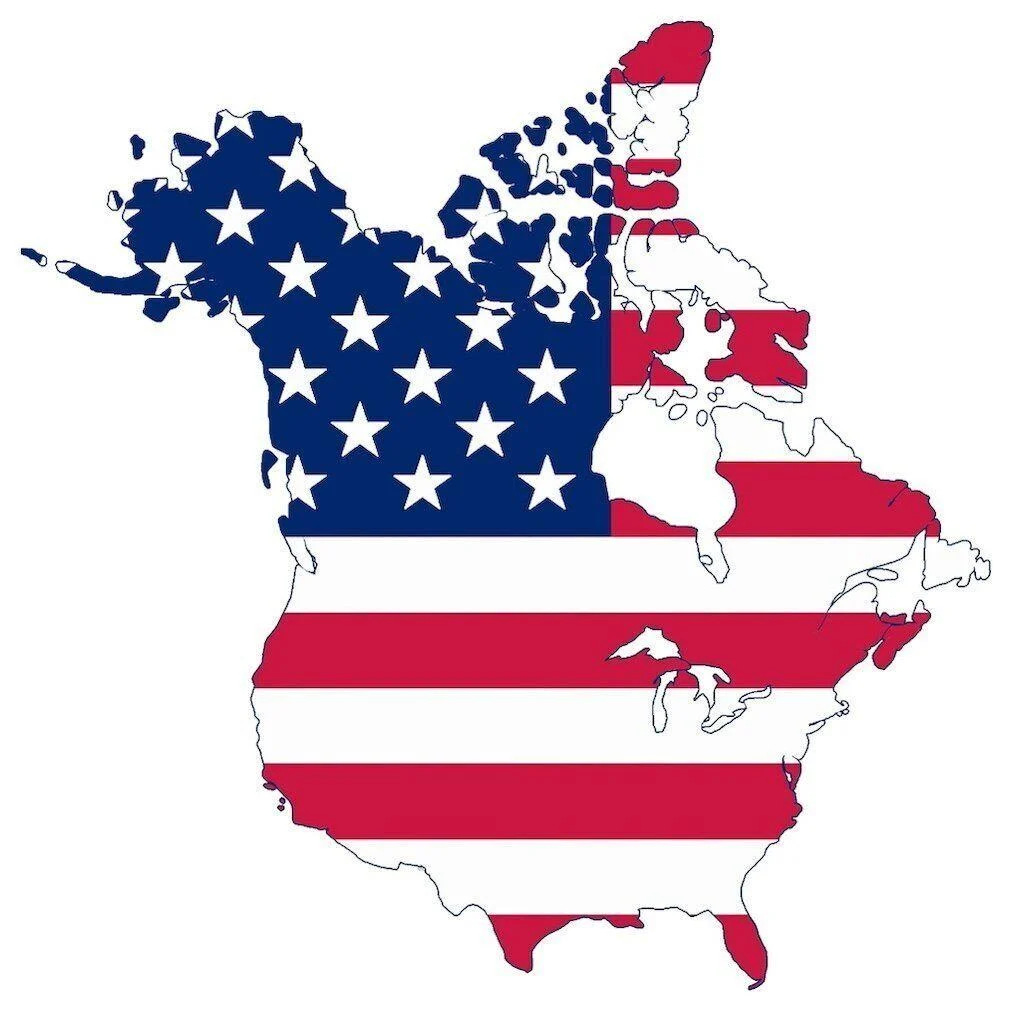Trade war ironies, Canadian and American
Trump's tariff threats betray a deep misunderstanding of America's already-dominant trade position. Canadians, meanwhile, should be asking deeper questions about their economic relationship to the US.
Earlier this week, I wrote about North America’s burgeoning trade war, what it tells us about Trumpism, and why it will expose the limits of MAGA economics. Today’s post is written with the Canadian perspective in mind.
Two glaring ironies stand out in the still burgeoning trade war initiated by Donald Trump amid his talk of annexing Canada through “economic force.”
The first is that, from an American perspective, the United States’ existing relationship to its much smaller northern neighbour is already, largely, one of domination. Despite what Trump seems to think, America’s import-dependent economy (and its corresponding trade deficit) reflects not weakness but the successful projection of imperial might. Free trade was enthusiastically pursued, both the Reagan administration and by corporate America, because it extended the power and reach of US capital — among other things weakening organized labour, outsourcing jobs to lower wage environments, and reducing the price of goods for US consumers.
As far as Canada was concerned, it meant expanded American ownership in key economic sectors from oil and mining to retail, telecommunications, and finance. Though this process had been underway for decades, the advent of the Canada-US Free Trade Agreement — whose passage was assured by the victory of Brian Mulroney’s Progressive Conservatives in the 1988 federal election — effectively consolidated a relationship of dependency. New legal mechanisms contained in the agreement, moreover, placed authority in the hands of unelected binational panels in the mediation of disputes. The upshot was that the policy options available to subsequent Canadian governments would be drastically narrowed: henceforth, a whole suite of potential subsidies and industrial strategies were potentially illegal, while the power of both elected officials and Canadian courts to act or intervene was weakened.
In theory, of course, the United States was bound by the same provisions — a fact that was not lost on some US critics of the agreement. But America’s size effectively mooted any parity this implied. Its companies are larger, its economy is more than ten times bigger and, as we’re seeing right now, the US government has always been in a position to behave basically as it likes.
Which, to return to where we started, brings us to the second irony: namely, the now more or less axiomatic assumption within the Canadian mainstream that Canada’s trade relationship with the United States is a precious thing to be cherished without examination. Don’t get me wrong: the near-uniform reaction of our political class to Trump’s threats has been surprising and at least modestly encouraging. In the immediate term, I see no real alternative to counterattacking by threatening massive retaliatory tariffs of our own — and US dependence on Canadian oil in particular has undoubtedly given the Trump administration (which had already created a carveout of sorts in its threatened tariffs policy vis a vis oil) some pause. That figures like Ontario Premier Doug Ford (long a self professed Trump fan) have gone from holding weepy press conferences to threatening the end of all US liquor sales in a matter of weeks is nothing if not testament to the resilience of Canadian national identity despite our country’s deep integration with the United States.

But there is, as of yet, no reaction from Canada’s leaders which suggests they are thinking beyond the current dispute or asking more fundamental questions about the deeper nature of its economic and political relationship with the United States. It’s deeply ironic, to be sure, that the Trump administration views America’s wildly asymmetrical trade relationship with Canada as a reflection of imperial weakness. It’s no less ironic, however, that so much of Canada’s political class — even amid the biggest shock to North America’s trade dynamic this century — can’t seem to envision even a modest alternative to it. For sinister and dubious reasons, Donald Trump is trying to remake the continent’s economic landscape. Encouraging though it’s been in one sense, the response from Canada’s leaders has at least so far been to seek maintenance of the status quo.
Thanks to Trump, an economic nationalism of sorts has suddenly returned to Canada with a vengeance. But to what end?
Though it expressed itself in radically different ways, the idea of economic independence formed a major part of Canada’s identity from the 19th century right through to the free trade election of 1988 (this is a long and complicated story I’ll have to save for a future post). Before the advent of free trade, Canadian economic nationalism had a foothold in all three major parties and exerted a particularly strong influence within the Canadian left beginning in the 1960s. Questions about the nature and extent of American ownership of Canadian industry and the influence of American capitalism on Canada’s economy were, until the quite recent past, the subjects of fierce political and ideological contestation.
The reasons for those concerns were varied. Sometimes, they were mostly cultural — reflecting the residual Britishness of English-Canadian society. But often, and more substantively, the underlying anxieties were economic, material, and animated by a spirit of social democratic egalitarianism. Sometimes, as evidenced by the once massively influential book Lament For a Nation (1965) by George Grant, they were a complicated mixture.

In any case, Canadians once approached the issue of their country’s relationship to the United States as an open and unresolved question. That this way of thinking seems comparatively absent today plainly reflects the success of the integrationist vision it opposed — a vision that has, importantly, been inseparable from the wider project of enshrining a neoliberal market society.
But, in the wake of Donald Trump’s threats, some of the old questions are worth asking once again. Do Canadians really want their collective economic destiny to be so radically shaped by American capital? Do they want a subordinate economic relationship to be permanently institutionalized in trade arrangements that override their elected governments’ capacity to determine key aspects of economic policy? Do they want the cold and profit-driven imperatives of the market to shape most aspects of life, or do they want to live in a country bound together by the values of solidarity, community, and civic cooperation?
For many on the Canadian left throughout the sixties, seventies, and eighties, the answers to all these questions were obvious — not because they were irrationally prejudiced against everything American or because the prospect of economic subordination was an insult to national pride, but because it presented a major obstacle to the building of a fairer, more equal, more democratic country.
Here, the path of economic independence was really just a means to an end — an end still very much worth pursuing.



This from another Canadian:
https://pluralistic.net/2025/01/15/beauty-eh/#its-the-only-war-the-yankees-lost-except-for-vietnam-and-also-the-alamo-and-the-bay-of-ham